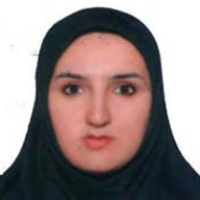Inhibition of NF-кB Expression in LPS-Induced RAW264.7 Macrophage Cells by a Thiazolidinone Derivative (TZDOCH2CH3)
To date, various derivatives of thiazolidinone in a variety of cell lines have been investigated. The present study aimed to evaluate the toxicity and inhibitory effects of a thiazolidinone derivative called 5-(2,4-bis- 4-ethoxy-phenyl azo)-3-hydroxy-benzylidine)-2,4-thiazolidinone (TZD-OCH2CH3) on the expression of NF-кB in LPS-induced RAW264.7 macrophage cell lines. Different concentrations of the MTT assay (0-120 μg/mL) were performed to estimate the biological rate of the cells. The half-maximal inhibitory concentration (IC50) of TZD-OCH2CH3-treated RAW264.7 cells was found to be 115 μg/mL. To determine the inhibitory effect of the synthesized compound on the expression changes of NF-кB, the RAW264.7 cells were initially induced with LPS and then treated by 15, 30 and 60 μg/mL of TZD-OCH2CH3. Real- time PCR results confirmed a strong inhibitory effect of TZD-OCH2CH3 on the expression of NF- кB in LPS-induced RAW264.7 cells (IC50 = 48 μg/mL). Overall, these findings suggested that the derivative TZD- OCH2CH3 had a significant anti-inflammatory ef
-
Induction of apoptosis in breast cancer 4T1 cells by Naringin-based nanoparticles
SH .Nejati, H.Ghafouri, S .Zarei
Journal of Cell &Tissue, -
Design, Synthesis and Biological Evaluation of a Novel Sulfonamide Derivative as antiproliferative agents for Human Breast Cancer Cell line (MCF-7)
Mohaddeseh Baravordeh, Hossein Ghafouri*, Asadollah Mohammadi,
Modares Journal of Biotechnology,



